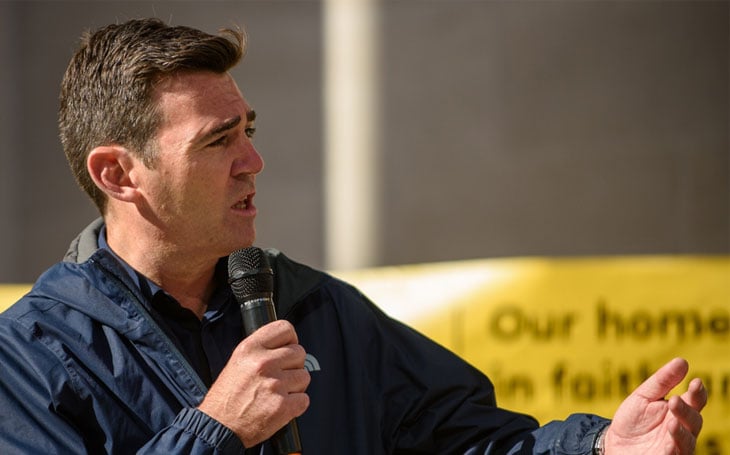What a Burnham premiership could mean for the property industry
Wannabe PM outlines his plans for Government (and housing) in a very public interview with a major newspaper.

Andy Burnham has given his clearest indication yet that he is considering mounting a challenge to Keir Starmer, outlining his policy ideas in a recent Telegraph interview, which include one of the most radical property market agendas in decades.
Burnham also revealed that Labour MPs are “privately urging him to challenge Sir Keir Starmer” and declined to rule out a leadership bid before May’s local elections.
His ‘soft left’ policies, he claimed, would ‘turn the country around,’ including higher council tax on expensive homes in London and the South East, £40billion of borrowing to build council houses, income tax cuts for lower earners, as well as a 50p rate for the highest-paid.
The £40 billion social housing investment programme would be the biggest state housing intervention since the 1970s and a scale of borrowing that would risk triggering the kind of bond market instability that occurred after Liz Truss’s infamous budget.
We’ve got to get beyond being in hock to the bond markets.”
Burnham dismisses such concerns, saying he would be prepared to “defy market resistance,” adding “we’ve got to get beyond being in hock to the bond markets.”
He also argued there is “huge underpayment of tax” because council tax rates are based on 1991 property valuations, insisting that London residents in “double-figure millions” homes often pay less council tax than Manchester residents, calling it “not justifiable.”
Pragmatic approach
As Mayor of Manchester, he has been highly critical of the Government’s housing policies. His own approach, though, has been fairly pragmatic. He has had some successes tackling homelessness, as well as implementing enhanced enforcement against rogue landlords.
He has also occasionally, though, flirted with rent controls and his delivery record on major housing projects is patchy at best.
Whether he gets the chance to implement his ideas is debatable. Even though Burnham is considerably more popular with both the Labour Party and voters than Starmer, to become PM, he would need to resign as mayor, win a parliamentary seat, and secure the backing of 80 Labour MPs.
However, if the party’s losses in May’s local elections are as bad as expected, his prospects could improve dramatically.







